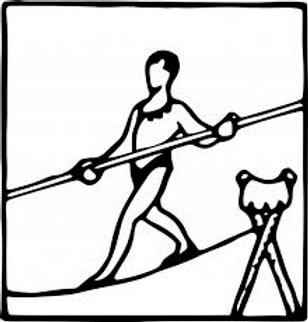
Society treats obesity as moral failure. This is a myth which I tackle in my upcoming book. People see it as slothfulness, a lack of motivation and poor self-control. Religion extends this as disobedience to God. This was far from the truth in my life.
I sought comfort and food was the closest substitute. My addiction to food was like any addiction, it was a substitute for what I needed. Food did not judge me, nor did it belittle me. It was a comfort for my hurt and listened to my cries without complaint.
As a child I had been a family scape goat. I was often blamed for things unrelated to me. I learned that I was a bad child and thus a bad person. Put simply, I hurt a lot. This emotional pain ruled my life; I had no energy for anything else and I ate.
After leaving home my heart’s desire was to be understood, but the judgement in my childhood followed me. Society judged me for my weight. I felt isolated and misunderstood, lonely and afraid. Then I made a friendship with someone who wanted to understand me. She helped me understand myself. How I saw myself changed and so did my relationship with food.
The challenge for me was not weight loss but letting go of the belief that I was intrinsically bad and undeserving of love and happiness. Obesity was only a symptom of what was happening for me internally. My thoughts and feelings kept me locked into unhealthy lifestyle patterns. Obesity is not about losing weight but losing shame. Shame is toxic and prevents us from seeing the good in ourselves. The fear it causes keeps us locked in our problems as it prevents us from facing the real issues behind the behaviour.
Groups such as Obesity Australia are now saying that obesity is not the individual’s problem but ours as a society. I agree with this in that the judgement of others contributed to my weight gain. Instead of helping me re-shape my perspective of life in a positive way, society reinforced the thoughts which exacerbated the problem.
However, obesity was primarily my problem and blaming others would not help me lose weight. I was the only one who could make the changes necessary to overcome it. Walking the tight rope of personal responsibility was not easy for me. I tended to tip toward blaming myself entirely for the state I was in. Freedom came from the recognition that I was not a bad person, nor did being fat make me a bad person. I was fundamentally good.
My closest friends reflect the good they see in me and encourage me to be my best self. These people keep me balanced in my journey of healing. They stop me from falling either side of the tight rope to blaming myself or blaming others. In fact, they stop me from blaming anyone. Obesity is not a reflection of my poor moral standards.
This is true for every addiction. I challenge you to let go of the blame game. Stop blaming yourself and others for your unhappiness. Instead, begin the journey of self-reflection. Take responsibility for your part of whatever troubles you in life. How you feel, what you think, your appearance or actions do not make you a bad person, nor can they make you a good person.
There are no quick fixes in life. Change can only come from the journey of self-acceptance. The challenge is to find ways to remain motivated. For me, this came from my belief in a love which was motivated for good. I chose relationships and activities which gelled with this belief.
A few ideas to start you on your journey of self-discovery and love are:
· Try meditation to re-focus your thoughts. Google ‘Mindfulness Meditation’.
· Connect with nature. Choose somewhere peaceful. The action of walking and the distraction of beauty is meditative.
· Go to the beach. The sound of waves is soothing.
· Get involved with others who do not reinforce your addiction. For example, I chose people who met me to walk and chat rather than having coffee and cake.
· Choose positive alternatives rather than avoidance. Instead of avoiding unhealthy foods I challenged myself to create tasty, healthy alternatives. I chose to drive to scenic, peaceful places rather than remaining home alone.
· Vent your frustration through exercise. Instead of heading home or places where I would go to food for comfort, I chose to stomp out my anger as I walked.
· Seek counselling, or professional help, not so much for an answer to your problem but to help you find the solution in yourself.
· Choose friendships which increase your self-confidence. Remember, what you need is within you.
Pick one of these alternatives and explore it this week. Send me a message to let me know how you go.